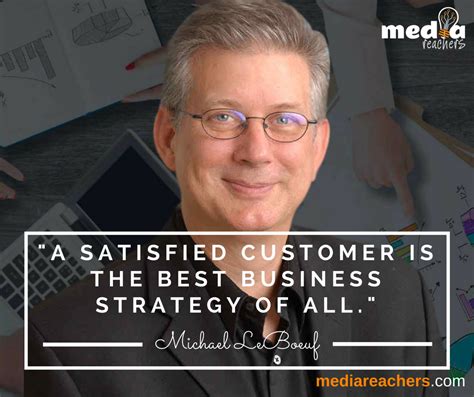A Quote by Meg Whitman
Many companies operate from more of a command-and-control environment - they decide what's going to happen at headquarters and have the organization execute. That doesn't work here because it's the community of users who really have control.
So we enable, not direct. We think of our customers as people, not wallets. And that has implications for how we run the company. We partner with our customers and let them take the company where they think it's best utilized.
Related Quotes
Often people say they can't base their strategies on customers because customers make unreasonable requests and because customers vary too much. Such opinions reveal serious misconceptions. The truly outside-in company definitely does not try to serve all the needs of its customers. Instead, its managers are clear about what their organization can and should do for customers, and whatever they do they do well. They focus.
When I explain our company values and the foundation to prospective employees, they realize that they have an opportunity to do much more than change the way businesses manage and share information. When you take a workforce of smart, creative, dedicated people and say "take this company time to serve your community, and bring along your coworkers, customers, and partners" great things happen.
Combating climate change is absolutely critical to the future of our company,Green Cooler customers, consumers-and our world. I believe all of us need to take action now. PepsiCo has already taken actions in our operations and throughout our supply chain to 'future- proof' our company-all of which deliver real cost savings, mitigate risk, protect our license to operate, and create resilience in our supply chain.
People who work for me are working for what I believe in. The leaders who run our companies do so on the basis of those who came first and who said, "A company is its people." I hope my companies are run on the basis of praising their workers and looking for the best in them, not criticizing them. In the same way that you water a plant and it sprouts leaves, people flourish when you praise them.
The fact that used cars is our largest category is a good example. We would not have sat in a conference room and said, "Hey, how about used cars?" So what can be learned that is extensible to other companies is to ask what are your customers doing with your products that maybe you didn't anticipate that they would do? How do you think of your customers as your research and development lab, as opposed to having an R&D lab at headquarters?

































